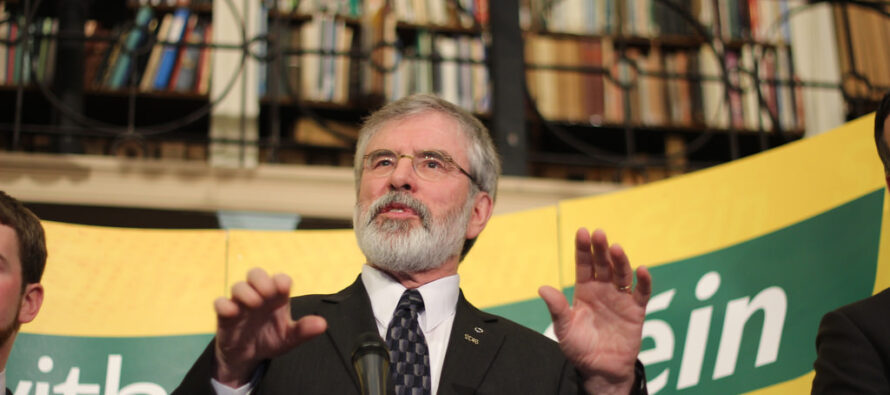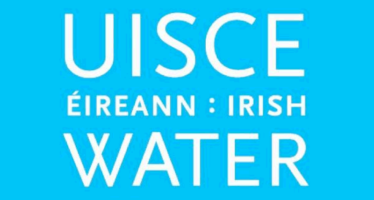Standing up for Ireland in the EU

![]()
The British political establishment and media like to describe Westminster as the ‘mother of Parliaments’. They ignore the cruel exploitation of scores of colonies during centuries of Empire and the widespread use of violence to suppress democratic demands. All of this is regularly brushed aside as the British system endlessly praises itself and inflates its sense of self-importance. Earlier this year an opinion poll found that 44 per cent of people in Britain were proud of its history of colonialism while only 21 per cent regretted that it happened. The same poll also asked about whether the British Empire was a good thing or a bad thing: 43 per cent said it was good, while only 19 per cent said it was bad. 25 per cent responded that it was “neither”.I would be confident that a similar poll in any of Britain’s colonies would paint a starkly different picture.The British are especially proud of their judicial system. This is despite the many miscarriages of justice against Irish people it perpetrated during the 1970’s and 80’s. However, the decision last week by the British High Court that Theresa May has to seek Parliamentary approval to trigger Article 50 of the Lisbon Treaty to begin the Brexit negotiation, has led to a deepening crisis within the British state.One right wing British newspaper branded the three judges who took this decision as ‘enemies of the people’.
The British right wing politician Nigel Farage has warned of violence on the streets. Add to this increasingly fraught atmosphere a plan by Farage to hold a 100,000 strong march in London on the day the British Supreme Court assembles to hear the appeal on December 5th. Does the British government know what it is doing? There is ample evidence to suggest it doesn’t. In the meantime the crisis for the island of Ireland around Brexit deepens with each passing day. Last week the Irish government held its Civic Dialogue forum on Brexit in Dublin. While the unionist parties disappointingly refused to attend nonetheless it was a valuable, wideranging conference which heard the views of political parties, economists, the civic and business sectors, the voices of rural Ireland and of agriculture, and of those community organisations that rely on EU Funding. Sinn Féin’s speakers highlighted the need for political alternatives to be agreed and for a diplomatic offensive, led by the Irish government, to build support for designated special status for the North within the European Union.This week a study published by the Department of Finance in Dublin, and the Economic and Social Research Institute, concluded that Brexit was going to be bad for the Irish state.It found that a hard Brexit would permanently damage the economy, reducing its size by almost 4% and increasing unemployment by as much as 2%.Last Thursday Martin McGuinness, Michelle O Neill and I met the Taoiseach Enda Kenny and the Minister for Foreign Affairs Charlie Flanagan at Parliament Buildings. They were at Stormont meeting some of the political parties about Brexit. Our conversation with them was part of Sinn Féin’s ongoing efforts to secure the position of the island of Ireland within the European Union. This is crucial given that Brexit will reshape arrangements and relationships between these islands and between us and the European Union. Our task must be to ensure that any new arrangements on this island are to the mutual benefit of everyone who lives here. This means there is an obligation on all of us to explore alternatives to Brexit – and all optionsavailable to ensure that the North can Remain within the EU.Rather than wait to see what the British government does, we need to be proactive about setting out alternatives – constitutional, political and otherwise – that protect and promote the national interests of our island. Specifically we believe that there is a need to build support for a designated special status for the North within the European Union.That threatens no ones constitutional preference and the Irish government, as a continuing member of the EU, has the right and in our view the obligation, to bring forward such a proposal.
There is also a particular duty on the Irish Government as a member state of the European Union and as co-guarantor of the Good Friday Agreement to strongly safeguard the political, constitutional and legal integrity of the Good Friday Agreement – an international Agreement – in all its parts British governments have no difficulty acting in their perceived national interests. The Irish government must also act nationally, in the accurate and meaningful meaning of that word. It means defending the interests and the rights of the people of this island.As well as the enormous and unprecedented economic challenges that face us, the entire post-Good Friday Agreement all-island institutional and political architecture is under very serious threat from Brexit. For example:
- The Conservative government has refused to put in place a Bill of
Rights agreed in 1998· They refuse to legislate for the rights of
Irish speakers through an Acht na Gaeilge that was agreed at St.
Andrews.· And the British government is planning to scrap the Human
Rights Act and to end their relationship with the European Convention on Human Rights which are integral parts of the Good Friday Agreement human rights infrastructure.As we seek to forge strategies to meet this challenge there are obvious priorities. These must include maintaining the Common Travel Area and the existing border arrangements to allow for the free movement of people and goods without trade tariffs, physical checks or passport controls.There also needs to be a specific focus on EU Funding.
The North and the border counties depend on funding programmes including INTERREG and PEACE to continue building the peace and developing the economy and cross-border structural funds which bring massive economic and social benefits. CAP, the Common Agricultural Payments subsidy is essential for farmers.And finally there are the implementation bodies that exist because of the Good Friday Agreement. The North/South Ministerial Council manages six All-Ireland Implementation Bodies working on a cross-border basis, including, InterTrade Ireland; Waterways; Foras; Irish Lights; SafeFood and the Special EU Programmes Body (SEUPB) which administers the cross-border EU funding.All of these elements and the specific agreements on health provision and other matters, are part of an interlocking institutional and constitutional arrangement that has maintained the peace for almost 20 years. All of this is now at risk because of Brexit.There is now an urgency and an obligation to move the process forward and begin to look at alternatives to Brexit. That means accepting and acting in line with the will of citizens in the North to remain in the European Union. The decisions we take and the strategies we pursue will impact on generations to come. The choice is simple – acquiesce to the demands of London and allow the North to be dragged out of the EU, or pursue the credible path to argue at European level and with the British government for the North to be designated a special status within the EU. Just as there are massive challenges, there is also the opportunity to plot a new course and stand up for the majority of people who voted to remain, to stand up for our national economic interests of all-Ireland trade and employment, and to stand up for the agreements and progress.
Related Articles
Uno sguardo ad UNGASS 2016 dal cono sud di America Latina
![]()
UNGASS 2016. Breve storia sulla costruzione recente di un immaginario egemonico sulle droghe
ALARMA EN LA DERECHA IRLANDESA POR EL AUGE DEL SINN FEIN Y LA MOVILIZACIÓN SOCIAL
![]()
La derecha se alarma ante el ascenso y creciente protagonismo del Sinn Fein, a punto de convertirse en el mayor partido de toda la Isla, el tema aun abierto y sangrante de las víctimas del reciente conflicto, y el masivo rechazo popular al Gobierno de Dublín y sus políticas económicas neoliberales.
ADAMS AND MCGUINNESS REVEAL TIMESCALE TO QUIT
![]()
Sinn Fein leader Gerry Adams has announced that he will step down from
his leadership role as part of the party’s ten year plan




